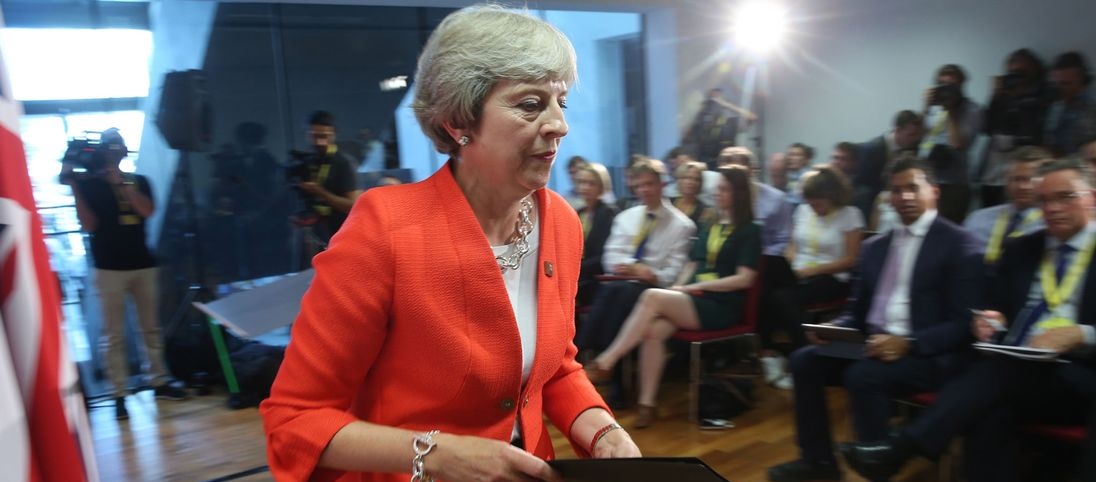EU united against May’s Brexit plan
September 22, 2018 | Expert Insights

European Council President Donald Tusk gives British PM four weeks to iron out a new Brexit deal.
The EU had earlier issued a unified refusal to PM May’s “Chequers” Plan.
Background
It was on June 23rd, 2016 that Britain narrowly voted to leave the European Union, stunning Europe and the world in general. The EU employs a set of policies for its 28-member states that aim to ensure the free movement of people, goods and trade among other services. Britain is deeply intertwined with the workings of the EU especially with regard to trade. Leaders of member nations have expressed their dismay over Britain leaving the body over the past year. German Chancellor Angela Merkel and Dutch Prime Minister Mark Rutte are among those who have been vocal about their apprehension regarding the unfolding events.
In December 2017, UK Prime Minister Theresa May struck a last-minute deal with the EU regarding key issues. According to this deal, there will be no "hard border" in Ireland. The rights of EU citizens in the UK and the rights of UK citizens living elsewhere in the EU would also be protected in accordance with the terms of the deal.
The UK is officially set to leave in March 2019, with or without a deal securing access to the EU common market.
Analysis
Theresa May was ambushed by EU leaders at a summit on Thursday, as they warned that her economic plan for Brexit “will not work” and gave her four weeks to save the exit talks. The UK prime minister’s allies had hoped that the EU would use an informal summit in Salzburg to offer words of encouragement about her Chequers Brexit plan, to help her fend off Conservative Eurosceptic critics at home.
Instead, Donald Tusk - European Council president, threw out the centrepiece of Mrs. May’s proposal — an EU-UK free trade area covering goods and agriculture — leaving her fighting to save her Brexit strategy.
“There are positive elements in the Chequers proposal but the suggested framework for economic co-operation will not work, not least because it risks undermining the single market,” Mr. Tusk said. The EU argues that Chequers poses a threat to the single market since it would give the UK access to the single market for goods while cutting back on other basic EU principles, such as the free movement of people.
France’s President Emmanuel Macron, one of the fiercest critics of the Chequers plan, said: “Brexit shows us one thing: it’s not that easy to exit the European Union. It’s not without cost. It’s not without consequences.” He said that the Leave victory in Britain’s 2016 EU referendum was “pushed by those who predicted easy solutions”.
However, the EU’s response to Mrs. May’s plan will embolden her Conservative party critics, including former foreign secretary Boris Johnson, to step up their campaign to “chuck Chequers” at the party conference this month. Mrs. May will be fighting to keep her plan, and possibly her premiership, alive.
Mr. Tusk also ratcheted up the pressure on Mrs. May, announcing that “the moment of truth” in Brexit talks would come at the Brussels summit on October 18, by which point he wanted to see a breakthrough on the question of the Irish border.
Counterpoint
PM May has been adamant about her proposed plan. She has been insistent that the Chequers plan provides the only “serious and credible” plan to create frictionless trade between Britain and the EU, including at the Irish border. She warned that she was ready to lead Britain out of the EU without an agreement. “We are doing what’s necessary to make a success of leaving the EU, whatever the circumstances are,” she said.
She added there was no prospect of Brexit being reversed in a second referendum — a hope harboured by some European leaders. “We are leaving on March 29, 2019,” she said.
Assessment
Our assessment is that as Britain was able to secure a deal regarding key issues in December 2017, the possibility of a no-deal Brexit seems unlikely in the status quo. However, the directionless negotiations between the government and the lacklustre leadership from the Prime Minister are leaving a cloud of doubt on any potential Brexit deal. UK companies and the government must prepare for the reality that post-Brexit, the private sector will not be able to access the same amount of privileges in Europe that it enjoys currently.








Comments